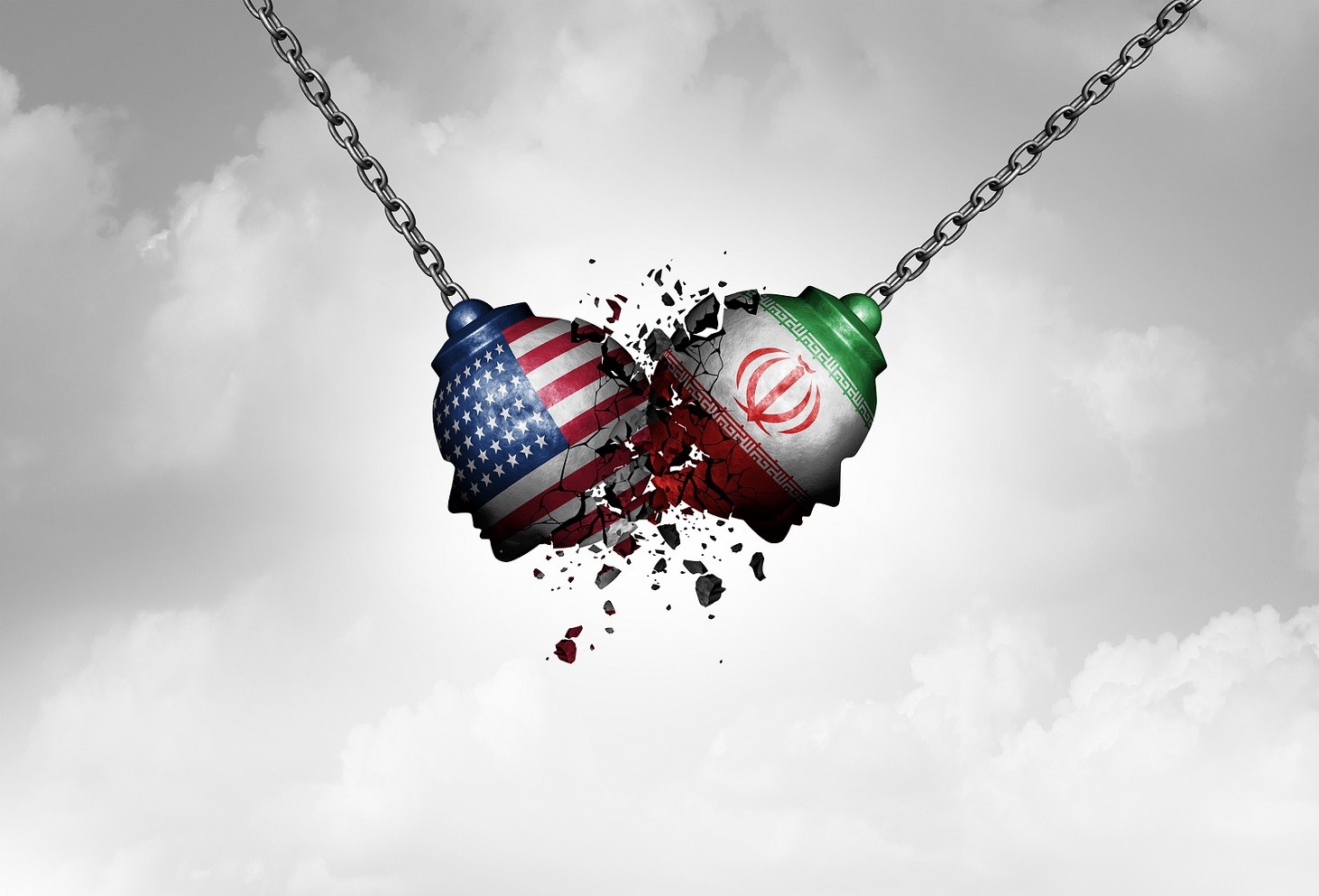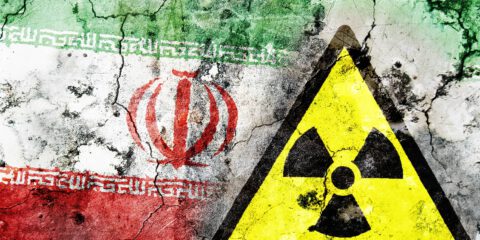A critical point has been reached where sanctions and military conflict connect. Tehran needs and seeks a limited military confrontation with the West in order to shore-up its legitimacy at home.
In recent weeks, Iranian protestors have gone to the streets in hundreds of towns and villages, burning banks and gas stations and confronting security forces. The regime has sought to decisively crush the protests, with extensive arrests and violent policing that has resulted in the death of hundreds of people. The regime also has blocked access to the Internet access and social media. Despite brutal and successful suppression of the protests, the regime seems to fear losing control of the situation.
Tehran has emphasized the direct connection, in its view, between American sanctions and the economic situation. The regime “paints” the US as the culprit for the current economic situation, diverting public fury from the regime to the West. While this is partly true since US sanctions have been imposed on Iran because of its nuclear program, the Iranian public nevertheless also blames the Ayatollahs for their “detached” economic policies, including corruption in government and “waste” of national resources to “export the revolution” to Syria, Iraq, Gaza, and elsewhere in the world.
It seems that the public in Iran disagrees with its leaders about Iran’s priorities. While the leadership ascribes crucial importance to the nuclear program, to the export of revolutionary Islam, and to struggle against Israel in the Syrian, the Lebanese arenas and in the Palestinian territories – the public demands that its local needs come first. This makes it difficult for the regime to channel the anger of the public toward Iran’s historical enemies, “The Great Devil and The Little Devil,” meaning the US and Israel; and complicates regime survival in the face of biting US sanctions.
Given the increasing threat to regime stability, Iranian leadership is urgently seeking ways of winning back public support for the campaigns against the US and Israel. One way of doing so is by provoking limited/controlled US or Israeli military responses against Iran. This allows Iran to activate its propaganda system and re-recruit the public in defiance of the enemy.
In recent months Iran has done almost everything possible to drag the West into military engagement. Taking control of a British tanker, shooting down a US drone, and the unprecedented bombing of Saudi oil refineries all have one message: “Please hit back at Iran.” Paradoxically, the fact the Washington has failed to respond firmly to these Iranian provocations – a sign of Western weakness – makes it difficult for Tehran to mobilize support from the public.
Whether Washington intended this or not, in effect the US has deepened the rift between Iranian leadership and the Iranian people. Indeed, many Iranians have welcomed US sanctions against specific Iranian leaders – whom are generally viewed by the Iranian public as corrupt.
However, the current economic campaign against Iran is not without risks of escalation. The commander of CENTCOM, General Kenneth F. McKenzie, has warned that Iran is currently planning another major attack in the Middle East. Again, this is not surprising, since Iran may want to drag the US, and possibly Saudi Arabia, into a limited military clash. In other words, a critical point has been reached where sanctions and military conflict connect.
Is Israel also facing frontal confrontation with Iran? Probably not, since Iran distinguishes between military confrontation with Israel and military encounter with the US and Saudi Arabia. If the regime is indeed seeking to shore-up legitimacy at home, it seems to prefer a confrontation with the US and its allies in the Gulf. This doesn’t mean that Tehran will not react to Israeli attempts to drive Iran out of Syria, but the regime understands that frontal military conflict with Israel on Syrian soil will not be welcomed by the Iranian people.
US and Israeli leaders must be careful. They must continue to broaden the wedge between the Iranian people and the Iranian regime by sanctions imposed on the regime’s senior officials. These sanctions can be enforced even more strongly, for example, by announcing a US monetary award for information on the properties of Iranian leaders, and by promising to hold these assets for the use of a post-revolutionary Iranian government.
The US must also decide whether to respond militarily (even in a limited manner) to future Iranian provocations. And more strategically, the US must clarify for itself whether it is seeking actual Iranian regime change or merely a return of Iran to the nuclear negotiating table.
JISS Policy Papers are published through the generosity of the Greg Rosshandler Family.
photo: Bigstock









 - בניית אתרים
- בניית אתרים